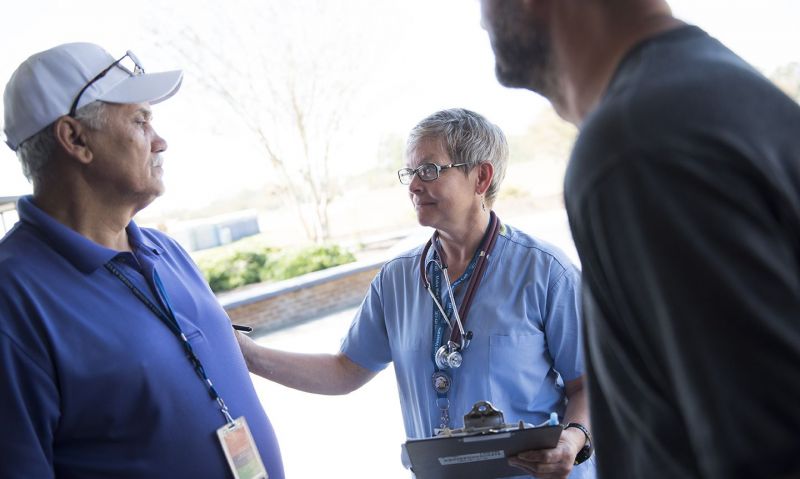
Resources are available for veterans who may be struggling with current situation.
As the Taliban retakes control of Afghanistan in the days following the U.S. withdrawal from the country, veterans of all eras are reacting to the unfolding tragedy. The Department of Veterans Affairs urges veterans to remember that they are not alone and that it is normal to experience feelings of moral distress and to question the meaning of their service.
Common reactions include feeling frustration, grief and anger and an increase in mental health symptoms such as PTSD or depression. To manage ongoing distress, VA recommends engaging in positive activities, staying connected, practicing good self care, sticking to routines and limiting media exposure.
American Legion National Commander James W. “Bill” Oxford echoed VA’s sentiments and urged those struggling to reach out.
“We need to let them know that their service matters today and it will matter tomorrow,” Oxford said in a statement. “I strongly encourage American Legion Family members to take this time to perform Buddy Checks on Afghanistan, Iraq and other veterans during this time. Reach out to your brothers and sisters in arms, and make sure they are doing OK and ask what they need.”
Resources available right now
Veterans Crisis Line. If you are having thoughts of suicide, call 1-800-273-8255, then PRESS 1 or visit veteranscrisisline.net/. For emergency mental health care, you can also go directly to your local VA medical center 24/7 regardless of your discharge status or enrollment in other VA health care.
Vet Centers. Discuss how you feel with other veterans in these community-based counseling centers. 70 percent of Vet Center staff are veterans. Call 1-877-927-8387 or find one near you.
VA Mental Health Services Guide. This guide will help you sign up and access mental health services.
MakeTheConnection.net. Visit for information, resources, and veteran to veteran videos for challenging life events and experiences with mental health issues.
RallyPoint. Talk to other veterans online. Discuss: What are your feelings as the Taliban reclaim Afghanistan after 20 years of U.S. involvement?
Download VA's self-help apps. Tools to help deal with common reactions like, stress, sadness and anxiety. You can also track your symptoms over time.
Tragedy Assistance Program for Survivors (TAPS). Request a Peer Mentor.
VA Women Veterans Call Center. Call or text 1-855-829-6636 (M-F 8 a.m. to 10 p.m. and Saturday 8 a.m. to 6:30 p.m. Eastern).
VA Caregiver Support Line. Call 1-855-260-3274 (M-F 8 a.m. to 10 p.m. and Saturday 8 a.m. to 5 p.m. Eastern).
Together We Served. Find your battle buddies through unit pages.
George W. Bush Institute. Need help or want to talk? Check In or call 1-630-522-4904 or email checkin@veteranwellnessalliance.org.
Elizabeth Dole Foundation Hidden Heroes. Join the Community
American Red Cross Military Veteran Caregiver Network. Peer Support and Mentoring
Team Red, White & Blue. Hundreds of events weekly. Find a chapter in your area.
Student Veterans of America. Find a campus chapter to connect with.
Team Rubicon. Find a local support squad.
- Veteran Support

